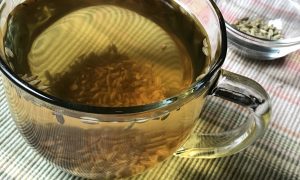Radishes are low in carbs and hence make for a great food option if you are watching your carb intake. They are also low in calories and have a low glycemic index.
Radish is an edible root vegetable that belongs to the cabbage family. Before Roman times, it was domesticated in Asia. Now, these root vegetables are grown and consumed across the world. Radishes are known for their pungent and slightly spicy flavour. They are available in various sizes, flavours and even colours as well. They are usually eaten raw in salads or added as filling to paranthas.
Read More: Chhath Puja 2023: Four-Day Puja Starts Today; Significance, Dos And Don’ts – All You Need To Know
Radishes are low in carbs and hence make for a great food option if you are watching your carb intake. They are also low in calories and have a low glycemic index. Radishes are packed with calcium, vitamin C, vitamin B6, folate, potassium, iron and manganese.
Radishes have specific compounds that help in managing blood sugar levels. It may give you energy and lower your glucose levels. There have been studies that show that the presence of antioxidant in radishes have blocked the formation of diabetes in animals. Apart from this, radishes are also known to help with better functioning of the liver and lower the risk of heart diseases.
However, if you are someone who has low blood pressure, then you should avoid eating radish and its leaves. As per the US Department of Agriculture (USDA), people with low blood pressure should not eat more than one radish a day. There are other reasons as well why one should not eat too many radishes-
Read More: Weight Loss With Custard Apple: 5 Ways How Sitaphal Can Help Reduce Belly Fat
Dehydration
Eating too much of these root vegetables during the winter season can lead to dehydration. Eating radishes reduces the amount of fluid in your body as it increases urination. It can also upset your stomach.
Pregnant Women Should Not Eat Radish
Pregnant women or lactating mothers should not eat radishes. Consuming raw radishes that are unwashed or not washed properly may lead to a high risk of salmonella and E. Coli infections. It can lead to fever and dehydration which can affect the health of your baby.
Kidney and Gallstone Patients Should Avoid Radish
Kidney and gallstone patients should stay away from radishes. Radish increases the flow of bile which can increase the pain that is caused due to stones in the bile duct. Also, do not consume radishes before surgery.
KW- Lifestyle, Food, Radish, Root Vegetable, Should pregnant women eat radish, Not eat too much radish, Why not eat too much radish, E. Coli infection from radish, Dehydration due to radish
Strapline- Radishes are low in carbs and hence make for a great food option if you are watching your carb intake. They are also low in calories and have a low glycemic index.
Caption- Radish is packed with calcium, vitamin C, vitamin B6 and manganese.
Radish is an edible root vegetable that belongs to the cabbage family. Before Roman times, it was domesticated in Asia. Now, these root vegetables are grown and consumed across the world. Radishes are known for their pungent and slightly spicy flavour. They are available in various sizes, flavours and even colours as well. They are usually eaten raw in salads or added as filling to paranthas.
Read More: What Is Strawberry Skin And Expert Tips To Treat It
Radishes are low in carbs and hence make for a great food option if you are watching your carb intake. They are also low in calories and have a low glycemic index. Radishes are packed with calcium, vitamin C, vitamin B6, folate, potassium, iron and manganese.
Radishes have specific compounds that help in managing blood sugar levels. It may give you energy and lower your glucose levels. There have been studies that show that the presence of antioxidant in radishes have blocked the formation of diabetes in animals. Apart from this, radishes are also known to help with better functioning of the liver and lower the risk of heart diseases.
However, if you are someone who has low blood pressure, then you should avoid eating radish and its leaves. As per the US Department of Agriculture (USDA), people with low blood pressure should not eat more than one radish a day. There are other reasons as well why one should not eat too many radishes-





































